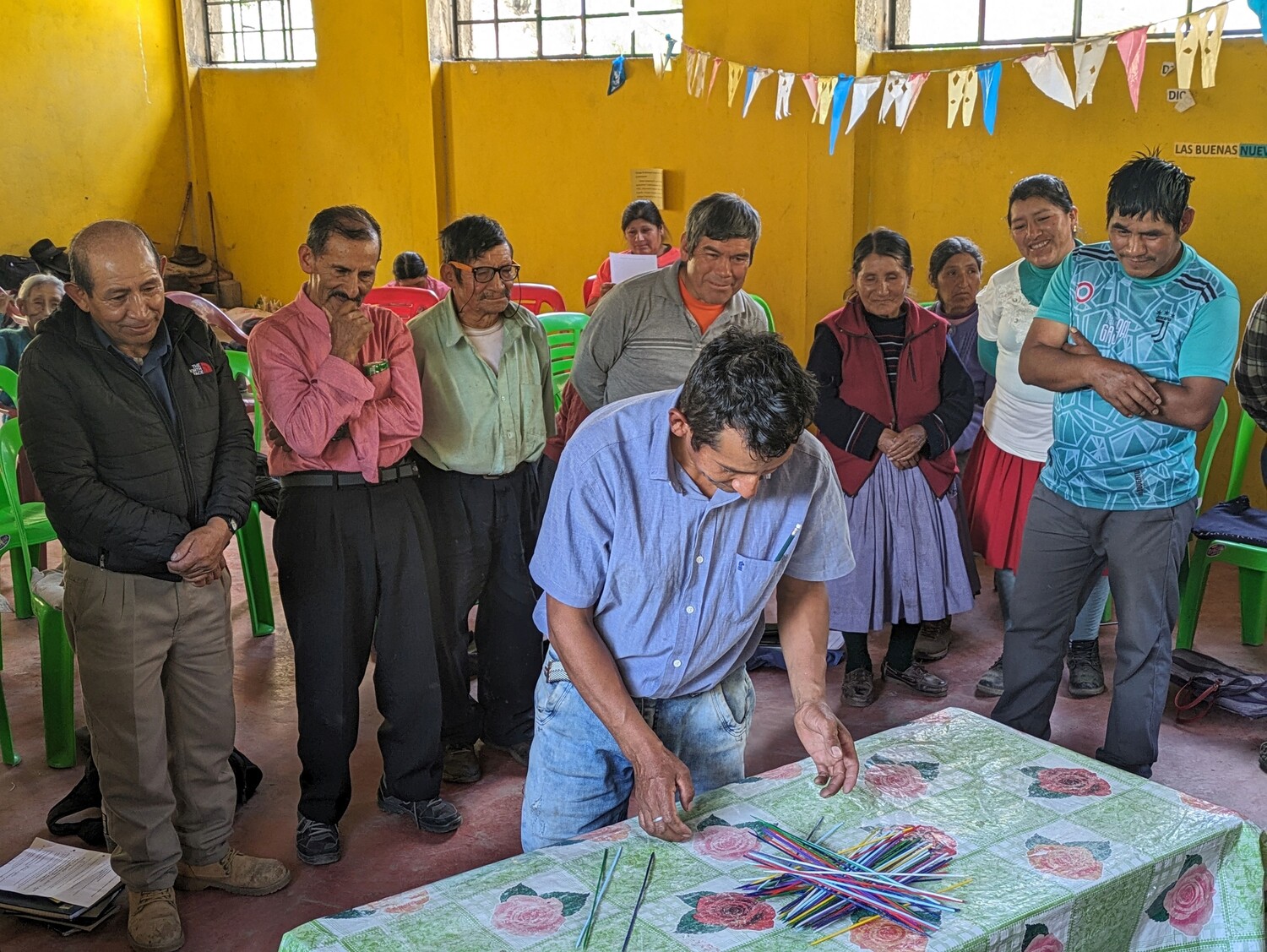Clouds scud across the sky, providing momentary relief from the piercing sunlight of high noon in the Andes. The Apurímac region of Peru is a land of extremes, a hardscrabble environment that’s rich in beauty but poor in material goods. It’s a world away from the political elites in Lima, Peru’s capital. But God hasn’t forgotten it. And a Bible translation movement born in these dusty mountains is having a ripple effect across Peru.
The highlands of Apurímac are dotted with tiny villages where most people speak Eastern Apurímac, a dialect of Quechua. In a country dominated by the Spanish language, speakers of Quechua and other minority languages can face discrimination and shame, and often have difficulty accessing basic necessities such as health care and education. Poverty is widespread.
The need for Bible translation
Cesilio Huamanñakuí Huamán has been a pastor and church planter in these mountain communities for almost 30 years. The 70-year-old is based in the regional capital of Abancay, but he regularly travels the winding, grinding mountain roads to visit the villages. “Sometimes, we walk for three days because there are no cars,” says Cesilio. When he enters a church, you can feel the tenor of the room shift—Pastor is here. In his years of ministry, he’s seen firsthand the anguish of lives torn apart by alcohol abuse, domestic violence and sheer, relentless poverty.
There are enough stories in these mountains to break your heart, and you can see the years of emotional toil in the lines on Cesilio’s weather-beaten face. But that’s not where this story ends. On the mountains of Apurímac, two paths have been forged for broken lives to encounter the Great Healer: the Bible in Eastern Apurímac Quechua, and the faithful service of people like Cesilio who are willing to be the hands and feet of the gospel. AIDIA is an integral part of both.
The role of AIDIA
AIDIA (pronounced idea) is the Spanish acronym for the Interdenominational Association for the Holistic Development of Apurímac. It was founded in the early 2000s by Peruvian volunteers and members of Wycliffe Canada and Wycliffe’s key field partner SIL. Their goal was to translate the Bible into Eastern Apurímac Quechua and to support the spiritual, physical and relational health of the mountain communities—the holistic development that the acronym suggests. A passionate team of translators including Luis Cervantes reached a major milestone with the publication of the New Testament in 2013.
As people began to see and hear Scripture in their own language, something shifted. “People received the New Testament with a lot of emotion,” says Cesilio. “They were very excited.” Even those who couldn’t read eagerly bought copies, pledging to ask their children to read it aloud to them. Many people listened to the Word on their audio Scripture devices, often while working in the fields. Stories like Maria Teresa’s began circulating.
An Old Testament translation followed, and the communities are now eagerly waiting for the printer to send copies of the completed Scriptures so they can celebrate and distribute them. But AIDIA’s work in Apurímac won’t end with a Bible dedication. Team members continue to visit the mountain communities to teach literacy and Scripture engagement and train Sunday school teachers. They co-ordinate with other charities to arrange food donations and provide water filtration systems. And they continue to train and support pastors like Cesilio as he plants churches—including five in 2023.
AIDIA’s vision expands
AIDIA’s vision is also spilling beyond the boundaries of Apurímac. As work on the Eastern Apurímac Bible concluded, Seed Company (one of Wycliffe’s and AIDIA’s partner organizations) asked Luis to consider starting a new translation project. Seeing the pressing need in Peru for translation, AIDIA worked with Seed Company and SIL to investigate and eventually propose not one, but six new translation projects. What they didn’t yet know was that one of these was the answer to long and ardent prayers from a very different part of Peru.
An answer to prayer
Deep in the flat-as-a-pancake jungle of the Amazon Basin, small villages are clustered on the banks of the sluggish Pastaza River. The air is thick with humidity, and the blazing sunlight filters through a canopy of leaves. This, too, is a world away from the political elites in Lima. And just as in the lofty heights of Apurímac, Northern and Southern Pastaza Quechua speakers are desperate for the transformation that comes with receiving God’s Word in their own languages.
River Mucushua Sandy, 47, and his wife, Ana Mirian Roncal Guerrero, 41, have been church planters in their Northern Pastaza community for 16 years. They are well-acquainted with the abuse and dysfunction that plague these villages, and they fear for the social influence that oil companies are beginning to exert on the region. They believe that God’s Word in Northern Pastaza is essential for transformation.
“When we began planting churches, we started praying for a Bible translation,” says Ana Mirian. “We wanted to have the Bible in our language because Spanish is difficult to understand for us.”
She and River started sharing their dream of a Northern Pastaza Bible translation, but everyone they talked to said that it would never happen. Then, one day, after 16 years of prayer, Ana Mirian received a phone call: “There’s a man named Luis looking for you. . . . ”
A new translation begins
In early 2023, River, Ana Mirian and their children—along with a handful of other families—moved many hours downstream to the town of San Lorenzo, the headquarters of the new Northern and Southern Pastaza Quechua translations. As River and the rest of the team begin the long journey of translation, they’ve already had people from other language communities ask them how they, too, can receive the Bible in their own languages. So the ripples expand. Whether high in the mountains or deep in the jungle, the deepest need of the human heart is to know God and to hear Him speaking in a language that we understand.
